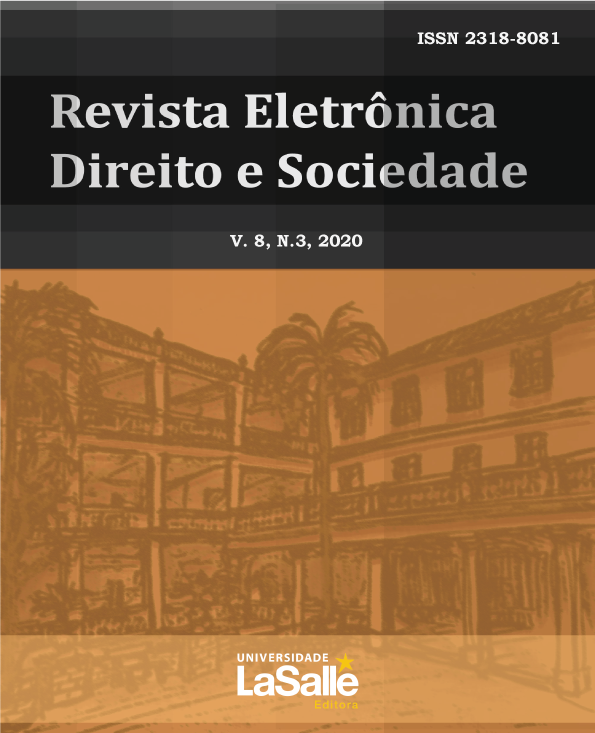Is pornography a legitimate limit to the exercise of freedom of speech? An analysis from the dialogue between Ronald Dworkin and Catharine MacKinnon
DOI:
https://doi.org/10.18316/redes.v8i3.6342Keywords:
Free Speech, Pornography, Feminism, Ronald Dworkin, Catharine MacKinnon.Abstract
This paper proposes an analysis of whether pornography constitutes a legitimate limit to the exercise of the right to freedom of speech and if the circulation of its content may be prohibited. Such research is based on the existence of a portion of the feminist movement that exposes the issue as a political-egalitarian problem, which sees in pornography an industry that threatens the pursuit of equality between men and women. As well as in the argument of liberal theorists, who oppose this position, believing that the prohibition represents a censorship. It is in face of this that an analysis is made of the dialogue between the American authors Ronald Dworkin and Catharine MacKinnon, representatives of two different perspectives on this question; therefore, being used as theoretical frameworks for the research. It is justified by the importance of carrying out studies that discuss this right,, as well as by the growth of feminist movements, which demonstrate its relevance and topicality, in addition to the clear divergence on it. For such, it adopts as methodology a bibliographical research, from the development of an exploratory study based on already elaborated material. Given this, it is evidenced that although it is necessary to make a critique of the macho culture, it will not be through the prohibition of these materials that the goal of equal gender will be achieved. Censorship cannot be used as a justification even in this scenario, since ideas believed to be offensive are as worthy of protection as those with which there is agreement.
Downloads
Published
Issue
Section
License
Authors who submit their manuscripts for publication in the “REDES” Magazine agree to the following terms:
The authors claim to be aware that they retain copyright by giving “REDES” the right to publish.
The authors declare to be aware that the work submitted will be licensed under the Creative Commons Non-Commercial Attribution License which allows article sharing with acknowledgment of authorship and publication in this journal.
The authors declare to be aware that by virtue of the articles published in this journal have free public access.
The authors declare, under the penalty of the law, that the text is unpublished and original and that they are aware that plagiarism has been identified, plagiarized authors will be informed - willingly, to take legal action in the civil and criminal sphere - and, plagiarists will have their access to the magazine blocked.
The authors state that - in case of co-authoring - all contributed significantly to the research.
Authors are obliged to provide retractions and (or) corrections of errors in case of detection.
The authors are obliged not to publish the text submitted to “REDES” in another electronic journal (or not).
The Electronic Journal Law and Society - REDES - is licensed under a Creative Commons License. Attribution-NonCommercial 4.0 International.Based on work available at "http://revistas.unilasalle.edu.br/index.php/redes/about/submissions#copyrightNotice".
Permissions in addition to those granted under this license may be available at http://creativecommons.org/.

